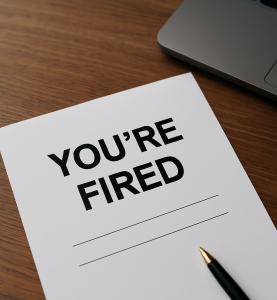August 12, 2019 was a historic day for employees throughout New York State. On that day, Governor Andrew Cuomo signed into law a number of reforms to the New York State Human Rights Law (“NYSHRL”) that makes it one of the most protective for employees. The reforms, inter alia, lower the threshold for hostile work environment claims, decrease the impact of one of the most notorious affirmative defenses, eliminate a ban on punitive damages, and subject all employers in New York State to the NYSHRL. These revisions extend some protections across the State that residents of New York City have been lucky enough to have due to the New York City Human Rights Law (“NYCHRL”). The changes build on similar ones made in 2018 as a result of the #metoo movement and will have a significant impact on the workplace, especially outside of New York City.
Petty Slight and Trivial Inconvenience
There are various causes of action that an employee may bring for harassment and discrimination in the workplace. One of the most heavily litigated claims is whether an employee was subjected to a “hostile work environment.” Previously, and still the legal standard under Federal employment discrimination laws, under the NYSHRL an employee needed to demonstrate that: (1) his/her workplace was permeated with discriminatory intimidation that was sufficiently severe or pervasive to alter their work conditions and, (2) a specific basis existed for imputing the conduct to the employer[1].
Notably, this standard has made it very difficult for employees to successfully plead a hostile work environment. That is because, to be successful, employees have been required to show that a single incident was extraordinarily severe or that a series of incidents were continuous enough to be deemed pervasive[2]. In other words, one event could be enough if it was “bad enough” or a series events could be enough if they happened often enough. Satisfying this standard has been hard to achieve for Plaintiffs.
However, the revisions to the NYSHRL will make it significantly easier for an employee to have his/her day in court.
In fact, this standard has been applied by courts in New York to dismiss various claims that may surprise the public to not be considered severe or pervasive enough to plead a hostile work environment. For instance, a hostile work environment was not found when a supervisor told a female employee that “she had been voted the sleekest ass in the office” and when the supervisor deliberately touched the employee’s breasts with some papers[3]. Likewise, a hostile work environment was not found when racist terms were used towards an African-American deputy and Nazi salutes were done in the workplace[4]. Finally, a hostile work environment was not found when a Defendant asked a Plaintiff to sleep with him, kissed her, and asked Plaintiff about her sex life[5].
However, the revisions to the NYSHRL will make it significantly easier for an employee to have his/her day in court. The updated statute specifically removes the “severe or pervasive” standard and provides that an employee only needs to allege behavior that would not be considered a “petty slight or trivial inconvenience”. This aligns the NYSHRL with the very protective NYCHRL. Employees outside of New York City will now be far better protected than they were before these revisions.
Another immensely important change is that punitive damages will now be recoverable under the NYSHRL.
In sum, the lowering of the standard for a hostile work environment means that many more employees should get to have his/her case decided by a jury of their peers. Lowering the standard for a hostile work environment claim is a long overdue change and makes the NYSHRL one of the most protective state laws for employees.
Punitive Damages
Another immensely important change is that punitive damages will now be recoverable under the NYSHRL. There are various types of damages that a Plaintiff may be awarded in an employment discrimination case. One type, compensatory damages, is meant to make the Plaintiff whole for what they endured. Prior to these revisions, this was the only remedy under the NYSHRL. However, in NYSHRL cases, Plaintiffs usually bring parallel claims under Title VII of the 1964 Civil Rights Act. But, damages for claims brought under Title VII are capped based on the size of the employer (as low as $50,000 and as high as $300,000).
Simply put, to avoid a potentially crippling jury verdict, employers now must ensure that employees are not harassed and/or discriminated in the first place.
Another type of damages available to a Plaintiff is called punitive damages. These damages, as the name suggests, are meant to punish the Defendant and deter similar behavior from happening again. However, before these reforms, punitive damages were not available under the NYSHRL. Although they were available under Title VII, they were subject to the aforementioned damages cap.
Taken together, the limits on punitive damages and the damages cap have caused Plaintiffs to receive sizeable jury verdicts that are then automatically lowered by the Courts[6]. As is made clear by the few examples provided in the footnote, Plaintiffs across New York State had their day in court, were awarded sizeable verdicts by juries of their peers, and then had such awards unilaterally lowered due to technicalities in the statutes. This was a windfall for employers across the State.
However, with this change, employers will no longer be able to rely on the lack of punitive damages under the NYSHRL to avoid punishment for harassment and discrimination they allow to happen at work. Simply put, to avoid a potentially crippling jury verdict, employers now must ensure that employees are not harassed and/or discriminated in the first place.
By specifically weakening this affirmative defense, New York State just became more employee friendly.
Elimination of the Faragher-Ellerth Defense
Among other defenses, the Faragher-Ellerth defense has developed into one of the most vital tools in an employer’s toolbox in dismissing employee’s harassment and discrimination claims. In essence, the defense allows an employer to avoid potential liability if they provide an avenue to complain and an employee “unreasonably” fails to do so. Before these changes, employees bringing claims under only Title VII and the NYSHRL, who failed to complain about harassment and discrimination, ran the risk of having no recourse. In essence, the onus was previously placed on the employee to complain, as opposed to the employer to provide a workplace free from harassment and discrimination.
Luckily, the revisions to the NYSHRL have specifically weakened the impact of this defense. Prior to these revisions, an employer who successfully argued the applicability of this defense almost always won. However, the new statute specifically provides that the defense is no longer “determinative.” As a result, it is no longer dispositive if an employee failed to complain about harassment and discrimination. By specifically weakening this affirmative defense, New York State just became more employee friendly.
Overall, the above revisions to the NYSHRL will likely make it harder for employers to dismiss employee’s claims of harassment and discrimination.
All Employers Now Covered
After these reforms take effect, all employers in New York State are subject to the NYSHRL. Prior to this most recent round of revisions, other than employees alleging sexual harassment (for which all employers were already covered) only employers who employed four or more individuals were subject to the NYSHRL. This meant that a number of employees, working for small businesses, were not provided protection from harassment and discrimination based on other protected classes (race, religion, sexual orientation, age, disability, etc.). By extending the statute to cover all employers, every New Yorker is now afforded protection against harassment and discrimination in the workplace.
Conclusion
Overall, the above revisions to the NYSHRL will likely make it harder for employers to dismiss employee’s claims of harassment and discrimination. Likewise, they will allow larger verdicts in cases that allege violations of the NYSHRL. Finally, each and every New Yorker is now protected from harassment and discrimination in the workplace. These changes will make the workplace safer from harassment and discrimination and should have significant impacts across New York State.
Gregory W. Kirschenbaum, Esq.
Attorneys at Law, PLLC
45 Broadway, Suite 620
New York, NY 10006
Tel: 212-248-7431
Fax: 212-901-2107
Email: gkirschenbaum@tpglaws.com
Mr. Kirschenbaum was recognized as a “Rising Star” in 2017, 2018, and 2019 by New York Super Lawyers for his contributions in employment discrimination law. Mr. Kirschenbaum has also been awarded the “Lead Counsel” rating in Labor & Employment Law for 2018. Along with his trial experience, he has litigated numerous cases in both State and Federal courts handling all types of discrimination cases, as well as wage and hour claims. In 2015, he was co-trial counsel that won a $2.2M jury verdict in a race discrimination case in the Southern District of New York.
[1] Van Zant v. KLM Royal Dutch Airlines, 80 F. 3d 708, 715 (2d Cir. 1996) (emphasis added)
[2] Perry v. Ethan Allen, Inc., 115 F. 3d 143 (2d Cir. 1997)
[3] Quinn v. Green Tree Credit Corp., 159 F. 3d 759, 768 (2d Cir. 1998)
[4] Brown v. Middaugh, 41 F. Supp. 2d 172, 188 (N.D.N.Y. 1999)
[5] Davis v. Phoenix Ancient Art, S.A., 975 N.Y.S. 2d 365 (N.Y. Sup. Ct. 2013)
[6] Mayo-Coleman v. Am. Sugar Holdings, Inc., 2018 U.S. Dist. LEXIS 94821 (S.D.N.Y. June 5, 2018) (Jury award of $13.4M lowered to $1.7M); Reiter v. Maxi-Aids, Inc., 2019 U.S. Dist. LEXIS 67873 (Jury award of $400,000 lowered to $50,000); Lewis v. Am. Sugar Holdings, Inc., 2018 U.S. Dist. LEXIS 139223 (Jury award of $2.354M lowered to $549,999).



















